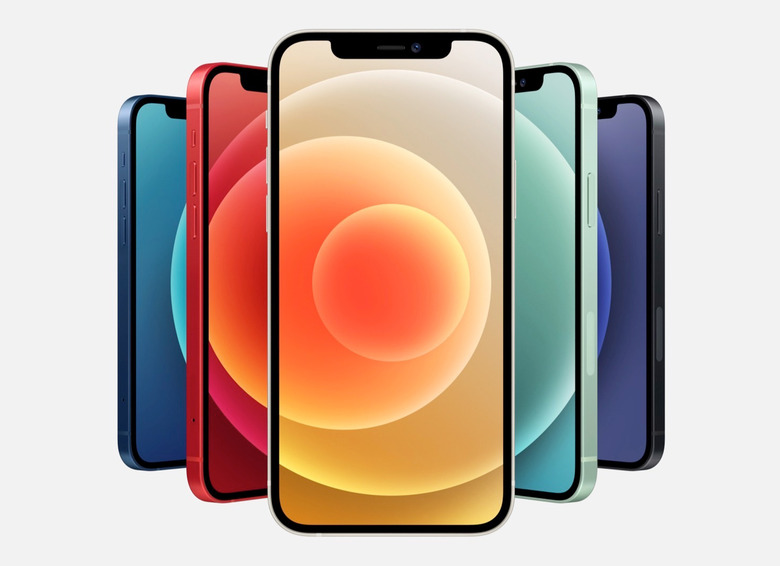Speed Test Shows Just How Fast The iPhone 12 Is Compared To Galaxy Note 20 Ultra And Pixel 5
- A YouTuber ran the same benchmark tests on the iPhone 12 Pro, iPhone 11 Pro, Galaxy Note 20 Ultra, and Pixel 5.
- The iPhone 12 Pro beat the Android phones in all tests, proving the A14 chip has no equivalent. The tests also showed the massive limitations of Pixel 5.
- The iPhone 11 Pro performed better than iPhone 12 Pro in a GPU test and outscored the Android handsets in everything else.
All four iPhone 12 phones rock the same high-end 5nm A14 Bionic chip that has almost no rival in the industry right now. The Kirin 9000 that powers the Mate 40 series is the only other 5nm chip out there, and it's unlikely it will be faster than Apple's own chip. We already saw the first set of iPhone 12 benchmark and performance tests that proved just how fast the new iPhones are compared to Android. Those tests also showed that the next best thing isn't even an Android device. The iPhone 11 phones also scored higher than Android in those benchmark tests and were quicker in various real-life usage tests. In fact, the iPhone 11 Pro Max was able to outperform the iPhone 12 Pro in a test that mimics gaming performance. Now that the iPhone 12 has started shipping to buyers, we'll see even more speed tests pitting the handset against some of the newest Android in town. And we already have a first YouTube clip that compares the iPhone 12 Pro and iPhone 11 Pro with the Note 20 Ultra and the Google Pixel 5.
YouTuber Austin Evans ran the same benchmark tests on the iPhone 12 Pro, iPhone 11 Pro, Note 20 Ultra, and Google Pixel 5. Unsurprisingly, it's not even a contest between iPhone 12 and Android. Not even the Note 20 Ultra can match the power of the iPhone 12 Pro (or iPhone 11 Pro) in benchmark tests. The Pixel 5 is out of its league. The phone doesn't rock the same Snapdragon 865 chip as the Note 20 Ultra — and the Ultra gets the "Plus" version of the 865, by the way. Google went a different route this year, picking the mid-range Snapdragon 765 for its Pixel flagship.
The iPhone 12 Pro outperformed the Android handsets in Geekbench 5, JetStream 2, and 3DMark, as you'll see in the clip at the end of this post. What's surprising is that the iPhone 11 Pro fared better in the 3DMark graphics test than the iPhone 12 Pro. That's consistent with the previous findings that said last year's processor would score better in this particular benchmark test. Evans does show that iPhone 12 offers a more consistent experience and frame rate in 3DMark. Further optimizations may improve the iPhone 12 graphics experience in the future.
The YouTuber also performed a longer graphics test to simulate a gaming session and found that the iPhones do get a lot hotter than the Android handsets. The Note 20 Ultra was cooler to the touch than the iPhone 12 Pro and iPhone 11 Pro, and the Pixel 5 was the coolest, according to Evans's measurements. The same endurance test also showed that the iPhones would throttle the chip's performance as they get hotter, which is expected for all mobile processors. The Qualcomm chips did not have to throttle as much.
The bottom line remains that the iPhone 12 will deliver an incredible performance, regardless of the task that it's given. No Android phone can even dream of matching the iPhone 11 Pro, let alone the iPhone 12 series. We'll have to wait for the Snapdragon 875 to arrive to see a 5nm processor or an Android device — the Mate 40 series, sadly, doesn't really count.
Evans's full video follows below.
